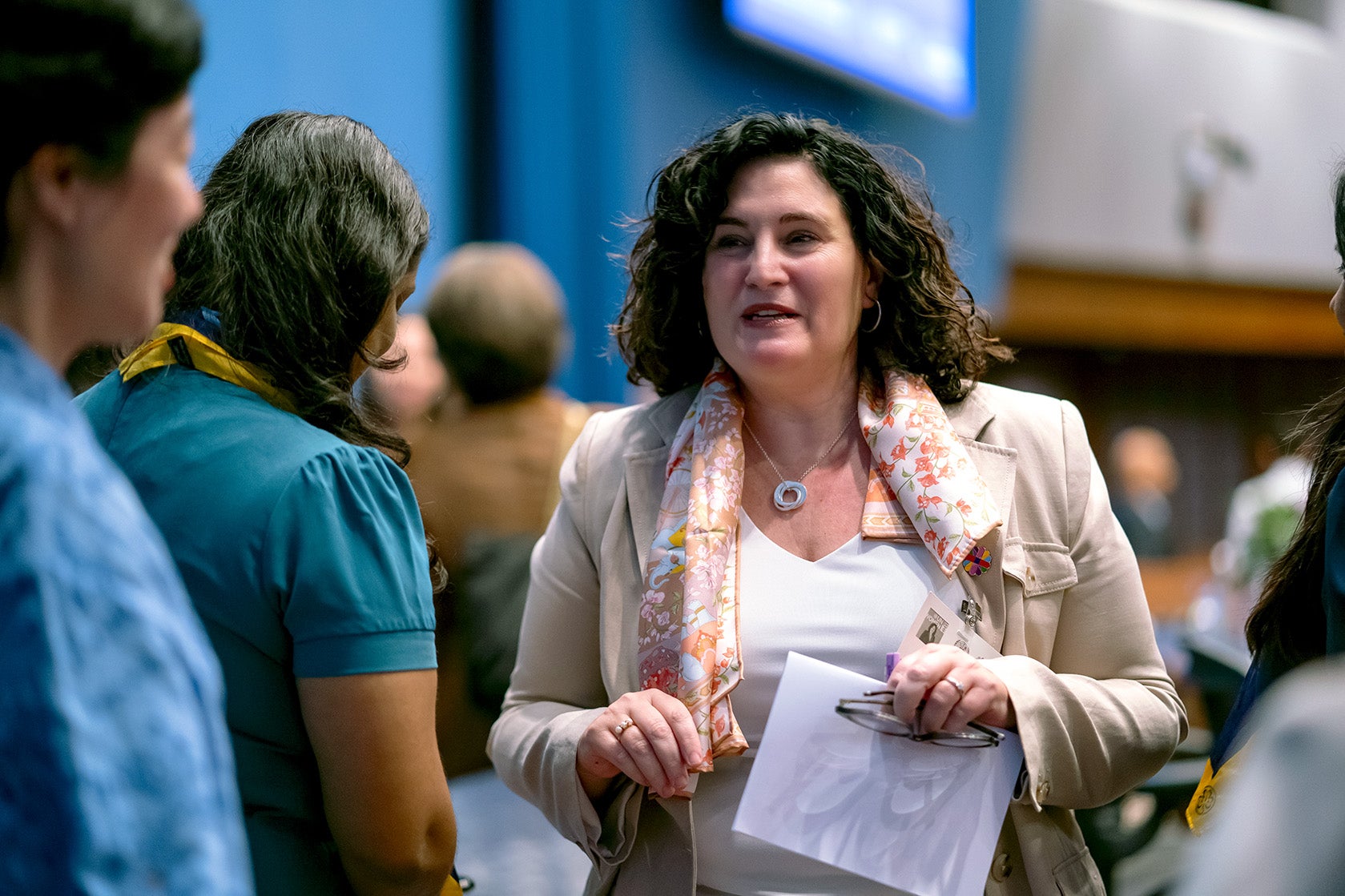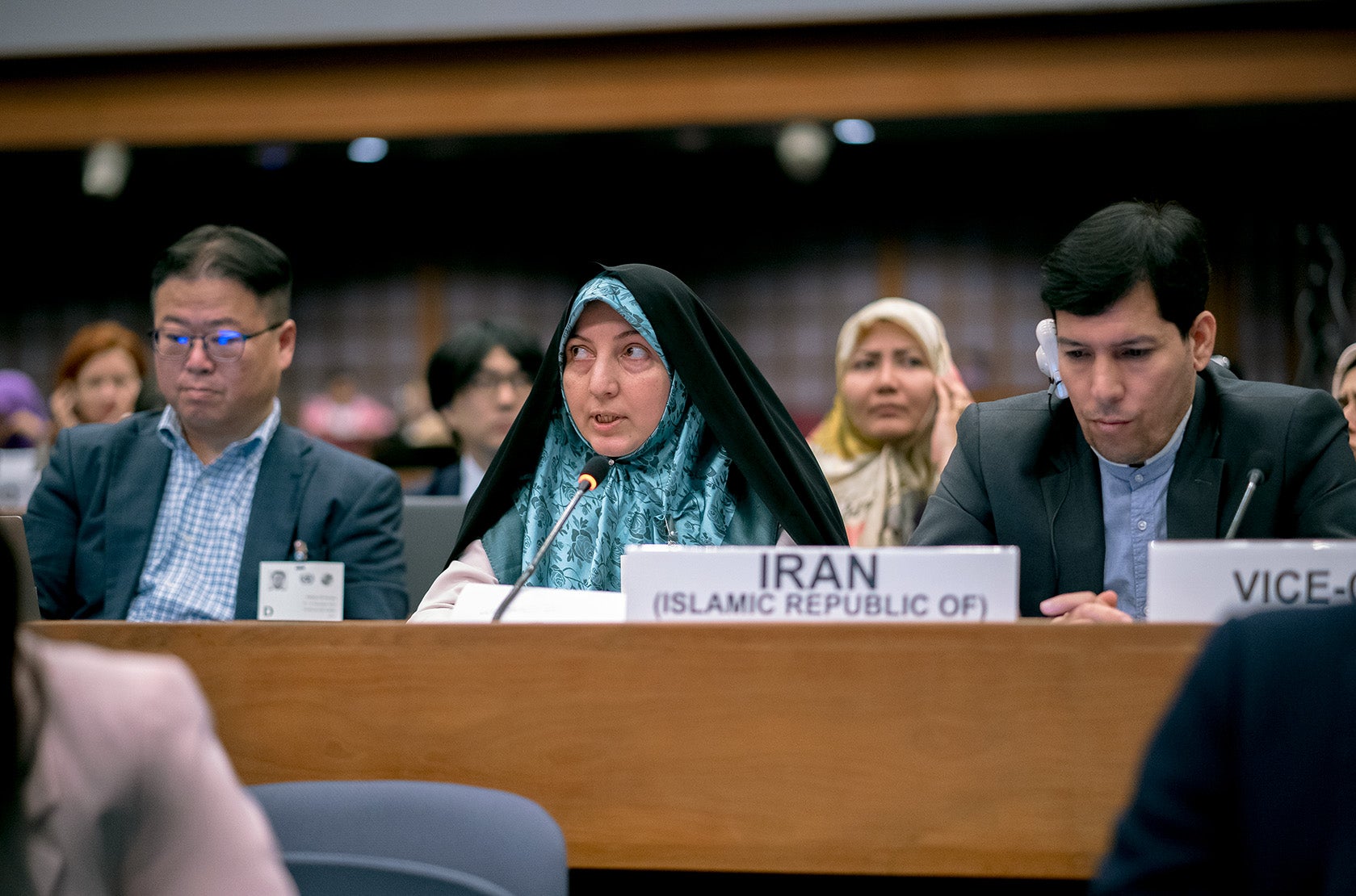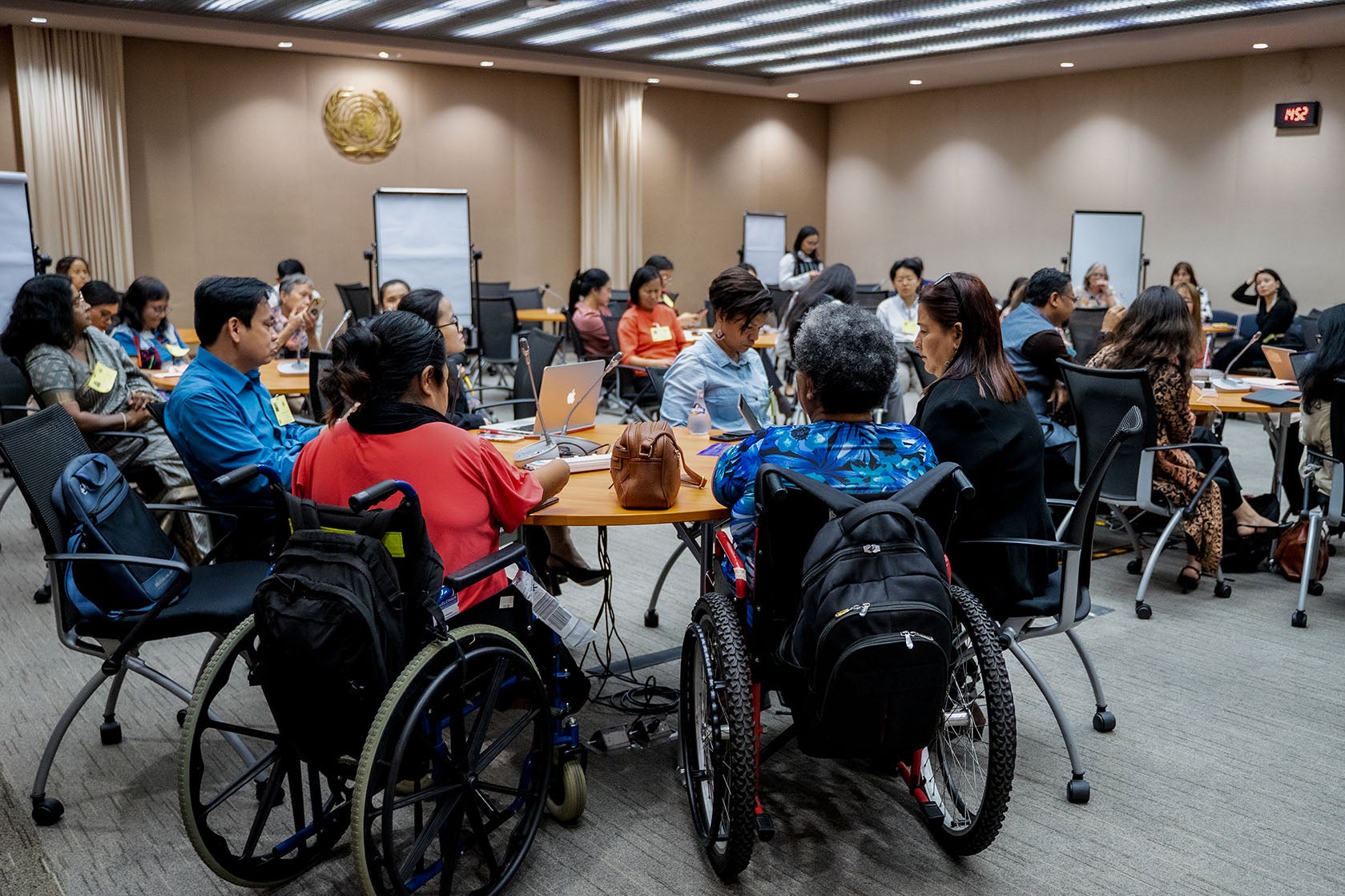Asia-Pacific countries wrap up review of global manifesto on women’s rights
Date:
Author: John Krich
Bangkok, Thailand — Representatives of 45 countries of the Asia-Pacific today wrapped up a review of a 30-year agreement on women’s rights by noting the significant progress made but also the persisting as well as newly emerging challenges.
The assessment by the Asia-Pacific Ministerial Conference on the Beijing+30 Review is to provide input for next year’s 69th session of the Commission on the Status of Women and global review of progress in implementing the Beijing Declaration and Platform for Action agreed to in 1995.
Over 1,000 delegates from governments, United Nations agencies, women’s and youth groups and others from around the region gathered at the three-day conference in Bangkok. The United Nations Economic and Social Commission for Asia and the Pacific (ESCAP) hosted the conference, with support from UN Women.

Christine Arab, the UN Women Regional Director for Asia and the Pacific, highlighted significant progress in women's rights during a news conference. Reflecting on her 26 years of experience in the field, she noted the stark contrast between the past and present. "In the beginning, we had to beg countries to meet us," she said. Today, however, the demand for UN Women's support has grown so significantly that the organization struggles to meet it.
Arab said that while all the United Nations Sustainable Development Goals are off track in meeting the 2030 deadline, Goal 5 on gender equality is one of the goals that will drive progress on the other goals.
Arab and Srinivas Tata, Director of Social Development Division, ESCAP, mentioned as a priority concern the disproportionate amount of family and household care work that women do, forcing them to opt out of the paid labour force, among other things. With one child, you can work, with two, it’s difficult, but “with three, you’re out,” Arab said.
The care economy, along with climate change, are the game-changers, Arab said.

Delegates at the conference discussed issues including the gradually improving but still-disappointing levels of representation of women in governance and decision-making; rising online and digitally enhanced violence against women and girls; the disproportionate impacts of climate change-induced environmental changes on women and girls; the need to economically empower women; and the needs and concerns of women who have disabilities or are in other disadvantaged or socially stigmatized situations.
UN Women announced at the conference today an offer of grants for journalistic stories on the intersection of gender and climate change. In addition, two dozen women journalists from the Asia and Pacific who were invited by the United Nations to report on the conference said they would be writing a manifesto calling attention to discrimination, bias and harassment in newsrooms and media management.
Also today, the conference honoured Champions of Care – banks, nongovernmental organizations and domestic worker groups -- who are supporting the millions of vulnerable domestic laborers, both paid and unpaid, in the region.
Other highlights of the Bangkok conference included the inspiring stories told by people like Bandana Rana of Nepal, a member of the United Nations Committee on the Elimination of Discrimination against Women, who said she had found her initial allegiance to the feminist cause while attending the Beijing conference 30 years ago.

The Bangkok event also celebrated “the change-makers” who support marginalized groups like indigenous girls with disabilities. Among those leading the cheers was Chia Yong Yong, Singapore’s first and only woman legislator with disabilities. Also spotlighted were risk-taking women entrepreneurs from Japan to Thailand, Fiji to Turkmenistan.
Varawut Silpa-archa. Minister of Social Development and Human Security of Thailand, had opened the Bangkok conference by reminding the room of the motto all countries in Beijing adopted in 1995: “Women’s rights are human rights.” But, he warned, “We are failing women and girls,” with much more that must be done – and must be done faster.